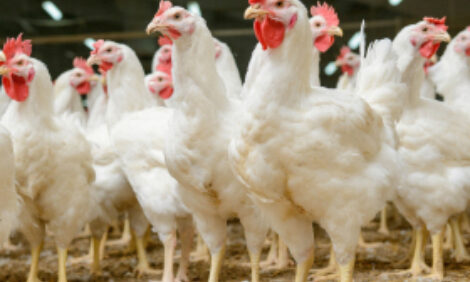



US Pushes WTO to End EU Ban on US Poultry Meat
US - The poultry industry is urging the US Trade Representative at the World Trade Organization (WTO) to pursue action 'resolutely' against the EU ban on imports of US poultry.The American poultry industry has urged US Trade Representative (USTR) Ron Kirk to "fully and resolutely pursue" a World Trade Organization (WTO) action against European Union rules that effectively block American poultry from the European market.
"The injustice against US poultry has continued for far too long, and it is time to begin to correct that injustice," the presidents of the National Chicken Council (NCC), National Turkey Federation (NTF), and USA Poultry & Egg Export Council (USAPEEC) told Mr Kirk's agency in a letter. "We encourage USTR to fully and resolutely pursue the dispute settlement process," they wrote.
The EU bans US poultry that has been processed using chlorinated water, which helps control potentially pathogenic microorganisms and is considered safe and effective by US authorities. The industry estimates that the policy prevents it from developing a market in Europe worth about $240 million for chicken and $60 million for turkey and duck.
WTO rules require that sanitary measures must be based on sound science and risk assessments to make sure they are employed fairly, justifiably, and without discrimination, the industry leaders noted.
"The EU has conducted no risk assessment to justify the ban on U.S. poultry," wrote George Watts, president of NCC, Joel Brandenberger of NTF and James H. Sumner of USAPEEC.
They wrote: "The EU has not been able to demonstrate nor justify why the use of pathogen reduction treatments is not scientifically acceptable and why a politically expedient decision should be acceptable.
"Pursuing the WTO dispute settlement process may not only prove to restore US poultry exports to the EU but, equally important, will promote and reinforce the critical WTO principles that address the international rules of trade and will provide for a more predictable and fairer opportunity for agricultural exports to participate in the world market."









